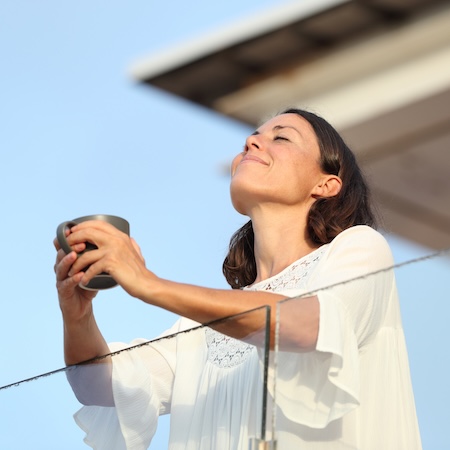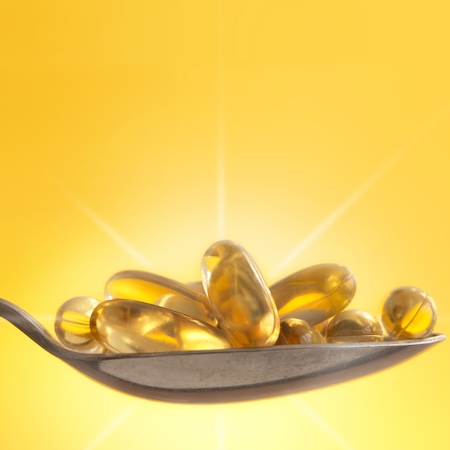By Patrick Cox, Chief Science Officer
It’s winter here in South Florida, and a balmy 78 degrees today. It’s a nice break from the heat, though I admit that the Floridian summers are my favorite time of the year.
In the summer, every other day I put on my swimsuit and work by the pool, enjoying an hour of sunshine in the late morning before the near-daily thunderstorms come rolling in.
(I guess I’ve been doing it right because a recent study suggests that you tan the best if you spend every other day out of the sun.)
I realize that sunshine is considered a toxin by many people. Many people, however, are wrong. Evidence is overwhelming that sunshine significantly reduces the incidence of serious diseases, assuming you don’t overdose.
It’s odd that some of the most effective and convenient health aids are ignored or even shunned. After all, our culture reveres health and youth.
It wasn’t always that way. When I was young, parents were always telling their kids to “go outside and get some sun.” Some of them may have just wanted an hour or two of quiet time, but there was a bigger reason.
In the first few decades of the 20th century, scientists proved that a component of sunshine cured the childhood form of osteomalacia, the bone-softening disease known as rickets. The US and Canadian governments established programs to educate the public about the benefits of sunshine and the vitamin D it produced in the skin.
They also started adding synthetic vitamin D to milk. By the time World War II arrived, the memory of widespread rickets was beginning to fade.
By the end of the 20th century, the medical establishment smeared direct sunshine as a public-health threat.
Like so many other widely believed medical rumors, the scientific case was never there.
Whether you believe that humans are the result of evolution or divine creation, it’s weird to think that nature or God made such a huge mistake that humans must avoid sunlight like hybrid vampires.
In fact, we don’t just tolerate sunshine—we seem to need it. And it’s not just about ultraviolet B (UVB) rays that create vitamin D in the skin.
In 2013, Scottish scientists revealed that people who get more sun have lower blood pressure and incidence of stroke than those who don’t.
This is because the skin uses sunshine to produce the components of nitric oxide (NO). NO is essential for vasodilation, the widening of blood vessels, which increases blood flow.
In 2014, the same researchers showed that sunshine slows the development of obesity and type 2 diabetes.
In neither case is vitamin D responsible for those benefits. In fact, sunshine in Scotland’s northern latitudes provides little of the UVB rays needed to produce vitamin D.
In 2016, scientists at Georgetown University Medical Center showed that sunlight energizes T cells, the warriors of our immune systems.
Once again, this is not due to vitamin D, which also boosts immune function.
It may, in fact, explain why people who get a lot of sun have fewer dangerous melanoma skin cancers.
Some people who get too much sun may get non-melanoma skin cancers, but they are harmless and easily removed.
Ironically, a recent Case Western Reserve clinical trial indicates that very high levels of vitamin D may reduce the pain, swelling, and skin damage from sunburn.
Of course it’s better just to avoid sunburn. However, that doesn’t mean you should slather on sunscreen whenever you go outside.
Rather, you should get moderate exposure to build a base that protects your skin from burning while receiving the many advantages delivered by sunlight.
Those advantages are remarkable.
Vitamin D, even in supplement form, seems to cut the risk of major diseases in half.
Michael Holick, the scientist who turned around the scientific community on the subject, estimates that getting everybody’s serum D levels up to optimal ranges would cut societal healthcare costs by 25%.
I think that number is too conservative. I’ve spoken to Canadian scientists who believe the benefit would be significantly greater.
In fact, one group told me that a combination of sunshine and vitamin D supplementation would balance both the Canadian and US healthcare budgets.
Given the new research on blood pressure, stroke, obesity, type 2 diabetes, and immune function, they’re probably right.
You will occasionally read about some paper refuting the notion that vitamin D improves everybody’s health.
That’s correct. We know that, for some reason, some very healthy people don’t seem to need high serum D levels.
That doesn’t diminish the value of vitamin D or sunshine, though. It’s just proof that there are great variations among individuals.
We need personalized rather than scatter-shot medicine.
(To read more about the important topic of personalized medicine from an analyst’s and a physician’s perspective, get the current issue of Chris Wood’s Healthy Returns newsletter. The wellness section is written by Dr. Mike Roizen from the Cleveland Clinic; I recently got a checkup there and was thoroughly impressed.)
In the meantime, most people would benefit from intelligent vitamin D and sunshine therapy... and those who aren’t helped aren’t hurt either.
The easiest and most effective solutions to our biggest challenges exist in biotechnology. New Zealand has already proven that the concept is sound. The failure of our healthcare bureaucracy to actively pursue anti-aging strategies may be the single greatest public policy failure of our time.
70 years ago, the US government actively and rightly encouraged moderate sun exposure. Today, we know that the benefits of sunshine and higher vitamin D dosages are even greater, but officials remain silent.
There are, thankfully, important exceptions. One is the network of scientists at grassrootshealth.net. They deserve your support.
Article originally published at: https://www.healthandwealthresearch.com/free-research/sunshine-is-good-for-you...-and-not-just-because-of-the-vitamin-d


